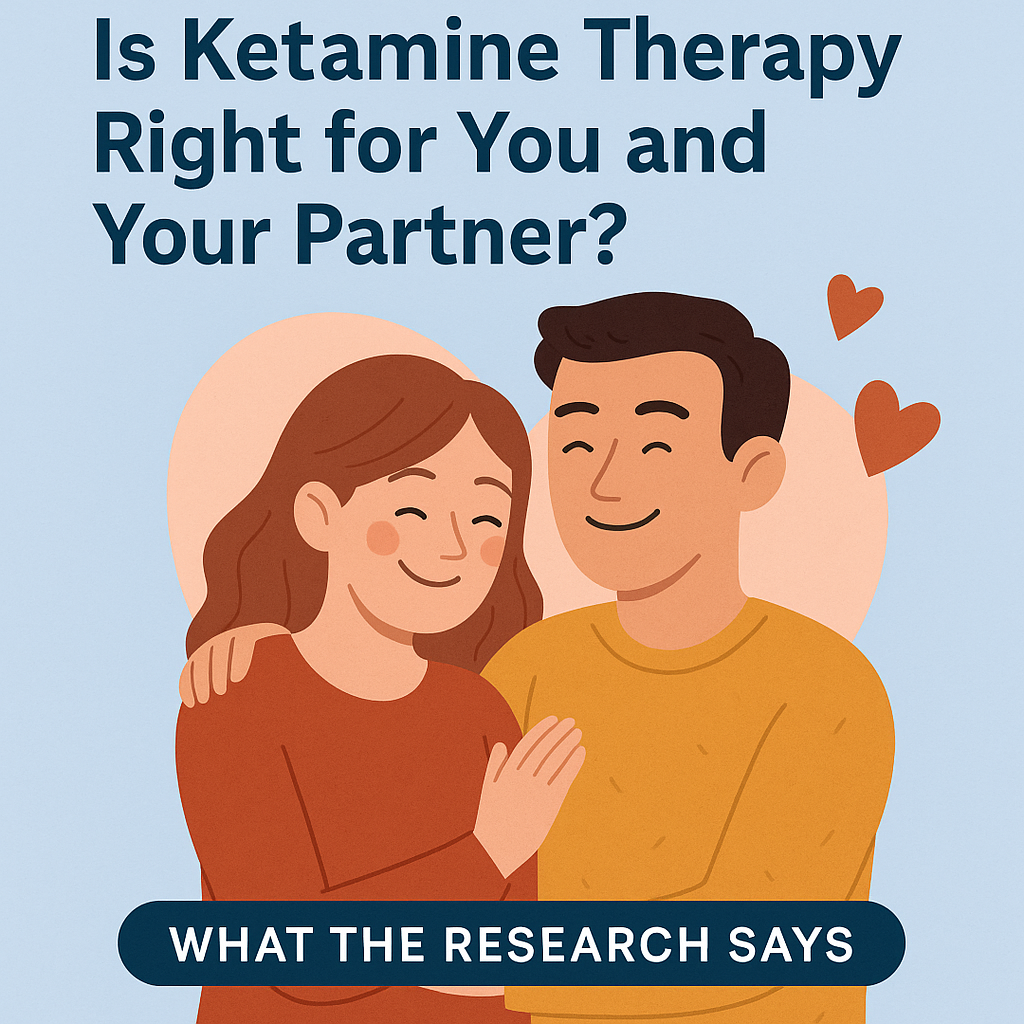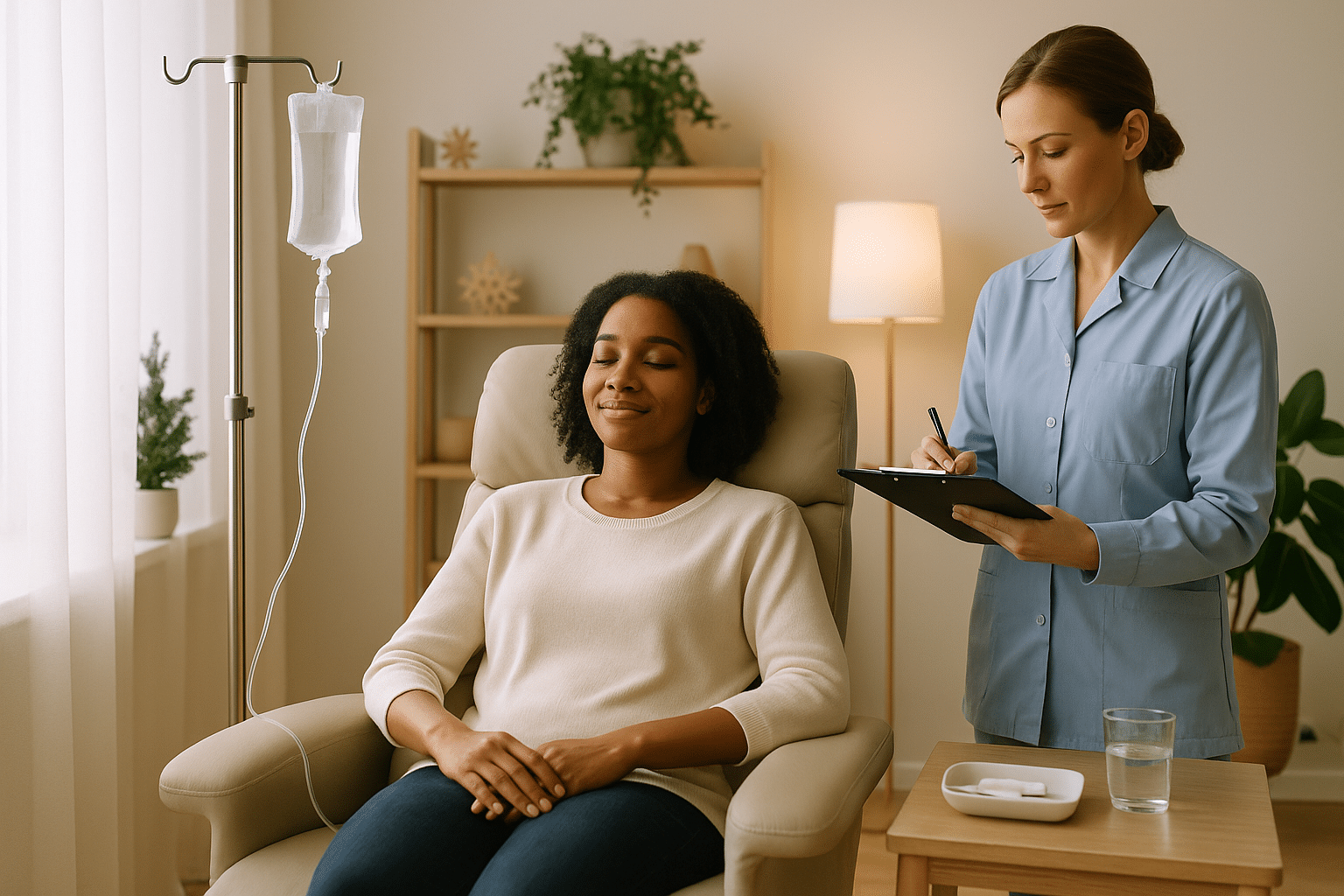Some couples reach a point where the usual strategies just stop working. Talking feels like circling the same drain, distance grows, and therapy, while helpful, doesn’t always create that breakthrough. In these stuck places, a new kind of approach is getting attention: ketamine assisted couples therapy.
What started as a treatment for depression is now showing promise in the relationship space. More and more couples are turning to ketamine assisted couples therapy to process emotional wounds, improve communication, and reconnect in ways traditional therapy couldn’t reach.
But what does the research say? Is this kind of therapy right for you and your partner?
The Science Behind Ketamine’s Emotional Impact
Ketamine isn’t your average antidepressant. It works fast, sometimes within hours. But more importantly, it changes how the brain connects.
Researchers have found that ketamine boosts neuroplasticity, the brain’s ability to rewire itself and form new patterns of thought and behavior. This ability to reshape perception and reaction is exactly what makes it useful in the relationship space.
In one of the most detailed studies on ketamine couples therapy, participants described feeling increased empathy, reduced defensiveness, and a deeper emotional openness after treatment. The couples engaged in structured therapeutic dialogues during and after sessions, and many reported that ketamine helped them step outside old blame cycles and actually listen to each other again.
How Ketamine Supports Relationship Repair
So, how exactly does ketamine therapy for couples work?
It helps lower the emotional defenses that keep people stuck. Think of the wall that goes up mid-argument. The part of you that wants to say, “you always do this,” instead of “that hurt me.” Ketamine softens those reflexes.
Here’s what clinicians and researchers say shifts during a session:
- Emotional accessibility improves: Partners report feeling less guarded and more able to speak vulnerably.
- Cognitive flexibility increases: Old stories like “they don’t care” lose power. There’s more space to see other possibilities.
- Behavioral avoidance drops: Difficult topics feel less threatening, which encourages honest conversation.
These are the core goals of most couples therapy models. Ketamine doesn’t replace the therapeutic work. Instead, it creates conditions where the work lands more deeply.
In one article, two therapists described how clients moved from years of unresolved tension to meaningful emotional breakthroughs after just a few integrated ketamine sessions. One couple, previously stuck in a shutdown-pursue dynamic, was finally able to reflect together on how their childhood experiences shaped their current patterns. That kind of reflection usually takes months. The altered state allowed them to step out of their story and see the pattern.
And from there, they could begin to change it.
Models of Ketamine-Assisted Couples Therapy
Not every couple receives the same treatment. There are different models based on comfort level, goals, and therapist recommendations.
Solo Dosing
Some couples use a solo dosing format. One partner receives a low-dose ketamine infusion while the other stays sober and supportive. This structure helps one person process their internal experience while still staying in the relationship container.
This approach works well for first-time ketamine experiences, safety concerns, or when only one partner has a prescription. After the session, many couples reflect together on what came up emotionally or internally.
Dual Dosing
Others prefer dual dosing, where both partners receive ketamine at the same time. This model is more introspective. Partners journey inward, then reconnect during integration sessions with their therapist. This model works well for couples who want deep, parallel healing and have experience with therapy or altered states.
In more therapist-guided models, a licensed professional supports both partners during and after the session, often using frameworks like Imago or Emotionally Focused Therapy. The ketamine session opens emotional doors, and the therapist helps couples walk through them together with care.
Some therapists describe this as a “relational dose.” It’s not about getting high or escaping. It’s about entering a space where real repair becomes possible.
Who It’s For, and Who It’s Not
Ketamine assisted couples therapy is not just for couples in crisis. It’s also for those who feel flat, disconnected, and functional but emotionally distant.
It can help couples who:
- Feel stuck in repetitive arguments that don’t resolve
- Struggle with intimacy after trauma or betrayal
- Want to deepen emotional connection, not just reduce conflict
- Have tried talk therapy but need something more experiential
- Are dealing with depression, anxiety, or PTSD that affects the relationship
- That said, this therapy is not ideal for everyone.
Couples with ongoing domestic violence, untreated psychosis, or unstable medical conditions are not good candidates. It also requires medical screening and clinical oversight because ketamine is a serious medicine, not a shortcut.
Sessions can bring up intense feelings. That’s part of the healing, but it can be destabilizing without support. That’s why integration with a trained therapist is essential. The medicine opens the window, and the work afterward makes the change last.
What to Expect From a Session
A typical session starts with medical screening and preparation. On the day of treatment, couples arrive together and get settled in a safe, supervised room. Some wear eye masks or listen to music to reduce distraction.
If both partners receive ketamine, they usually go inward first. After the effects wear off, a therapist may guide discussion. Over the next 24 to 48 hours, integration therapy helps process insights and apply them to real-life relationship dynamics.
Mild side effects like dizziness or nausea are possible but usually resolve quickly. Patients are monitored closely throughout to ensure safety.
And perhaps most important: The session is not the end. It’s the door. The real transformation happens afterward when the walls come down and partners meet each other in a new way.
Zeam Offers a Pathway to Reconnection
If you and your partner feel stuck, maybe not broken, but distant, ketamine couples therapy may offer a way back.
At Zeam Health & Wellness, we offer safe, structured ketamine assisted couples therapy for those ready to try something different. Our team works with couples across Sacramento, Folsom, and Roseville, guiding each step with clinical care and respect for the emotional depth of your relationship.
If you’re searching for a mental health clinic near you that understands the science and the sensitivity behind this kind of work, we invite you to reach out.




